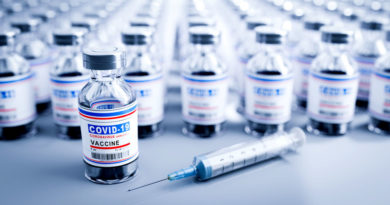How Likely Is Reinfection Following COVID Recovery? The Role of Natural and Innate Immunity

Public-health messaging from the beginning of this pandemic has had very little to say about immunity acquired following infection. But for most people, it is a real and pressing concern, and not only because of the vaccine mandates that have little or no regard for it. People want to know whether once recovered they can be confident of not getting it again.
Must everyone live in fear forever or is there a basis for the recovered to live with confidence?
We have looked at the published evidence and can conclude based on the existing body of evidence, that reinfections are very rare, if at all and based on typically a few instances with questionable confirmation of an actual case of re-infection (references 1, 2, 3, 4, 5, 6, 7, 8, 9, 10, 11, 12, 13, 14, 15, 16, 17, 18, 19, 20, 21, 22, 23, 24, 25).
Colson et al. did publish a very interesting paper on evidence of a SARS-CoV-2 re-infection with a different genotype. They sought to show that the same patient was infected in April, cleared the virus, seroconverted, but was “re-infected four months later with a new viral variant. The two infections reflect the circulating strains in Marseille at the same time. It is the most comprehensive study as it documented seroconversion following the first infection, showed drastically different viral genomes with 34 nucleotide differences, and ruled out errors of samples by techniques commonly used for forensic identifications.”
This study deserves serious reflection. If it is correct, we have at least one well documented case with a 4-month duration between infections.
However, A very recent study in Qatar (Lancet) found that “natural infection appears to elicit strong protection against reinfection with an efficacy ~95% for at least seven months”. Hall in Lancet reported same.
“The study in Austria also found that the frequency of re-infection from COVID-19 caused hospitalization in only five out of 14,840 (0.03%) people and death in one out of 14,840 (0.01%)”.
A very recent UK observational study by Lumley published in CID (July 2021) looked at the incidence of SARS-CoV-2 infection and B.1.1.7 variant infection in healthcare workers by antibody and vaccination status. “Researchers analyzed records from Curative, a clinical laboratory based in San Dimas that specializes in COVID-19 testing and has during the pandemic been conducting routine workforce screening. None of the 254 employees who had COVID-19 and recovered became re-infected, while four of the 739 who were fully vaccinated contracted the disease…it should give confidence to people who have recovered that they are at very low risk for repeat infection and some experts including myself believe that protection is equal to vaccination”.
“Israel National News reports that this data was presented to the Israeli Health Ministry and yielded the following breakdown of breakthrough infections of those vaccinated vs. those with prior infection:
“With a total of 835,792 Israelis known to have recovered from the virus, the 72 instances of reinfection amount to 0.0086% of people who were already infected with COVID.
“By contrast, Israelis who were vaccinated were 6.72 times more likely to get infected after the shot than after natural infection, with over 3,000 of the 5,193,499, or 0.0578%, of Israelis who were vaccinated getting infected in the latest wave…Irish researchers recently published a review of 11 cohort studies with over 600,000 total recovered COVID patients who were followed up with over 10 months. They found the reinfection rate to be just 0.27% “with no study reporting an increase in the risk of reinfection over time”.
Dr. Marty Makary of Johns Hopkins wrote “reinfection is extremely rare and even when it does happen, the symptoms are very rare or [those individuals] are asymptomatic.”
Dr. Peter McCullough (personal communication June 27th 2021) advises:
“I have demanded that if any one proposes a recurrent case the following are fulfilled: 90 days between the two illnesses. The episodes have both cardinal signs and symptoms with SARS-CoV-2 testing with at least two or more concordant results (e.g. RT-PCR, antigen, sequencing). To my knowledge, this has never happened. On one of the occasions the first or second episode was simply a false positive PCR or ambiently positive antibody result with no clinical syndrome.”
Dr. Peter McCullough and Dr. Harvey Risch (July 18th 2021) have suggested as another model for consideration:
“People have suggested to require more than nominal PCR positivity and having signs/symptoms to establish reinfection. So, PCR Ct<25 in both instances, antibody tests confirming the infections, symptoms both times, and separated by more than 90 days are some considerations that people have suggested.”
Importantly, the World Health Organization (WHO) has recently (May 10th 2021 Scientific brief, WHO/2019-nCoV/Sci_Brief/Natural_immunity/2021.1) alluded to what has been clear for many months (one year now), which is that people are very rarely re-infected. The WHO is very late but better late than never.
The key points they have stated in this briefing which stand out and warrants a mention (again we always knew this and tried informing the CDC and WHO of this across the last year) is that:
i) Within 4 weeks following infection, 90-99% of individuals infected with the SARS-CoV-2 virus develop detectable neutralizing antibodies.
ii) Available scientific data suggests that in most people immune responses remain robust and protective against reinfection for at least 6-8 months after infection (the longest follow up with strong scientific evidence is currently approximately 8 months).
iii) Studies aimed to detect immunological memory including the assessment of cellular immunity by testing for the presence of memory B cells, and CD4+ and CD8+ T cells, observed robust immunity at 6 months post-infection in 95% of subjects under study, which included individuals with asymptomatic, mild, moderate and severe infections.
iv) Current evidence points to most individuals developing strong protective immune responses following natural infection with SARS-CoV-2.
A very recent discussion on mild COVID-19 inducing lasting antibody protection, was based on a publication in Nature. The research showed that people who have had mild illness develop antibody-producing cells that can last a lifetime.
“Months after recovering from mild cases of COVID-19, people still have immune cells in their body pumping out antibodies against the virus that causes COVID-19, according to a study from researchers at Washington University School of Medicine in St. Louis. Such cells could persist for a lifetime, churning out antibodies all the while”.
In terms of Omicron, we are not seeing data or evidence to conclude that natural immunity has been breached. In fact, we believe, unless we are shown otherwise, that natural immunity has indeed held and worked marvelously. Based on the reported symptoms and sequelae, it can be considered an immune “rechallenge” and not a bona fide reinfection.
Based on current evidence, natural immunity is doing its job and innate immunity and natural immunity are working hand-in-hand and Omicron shows us this. The role of innate immunity is to protect as the first line of defense and typically completes the task and especially in children and young persons.
Top immunology and virology experts argue that the more the variants are different from one another, the more trained innate immunity is responsible for cross-protection. Dr. Geert Vanden Bossche (personal communication December 29, 2021) explains that:
“The innate immunity and thus innate antibodies, get ‘trained’ and ‘learn’ with re-exposures. Innate Abs have broad coverage and the innate immune cells secreting those adapt to the different stimuli to which the host get exposed. Repeated exposure during a pandemic will, therefore, result in enhanced training of innate IgM-secreting B cells. This builds the basis for a broadly protective first line of immune defense that is able to deal with all kinds of different variants. This protection is likely to be the key pillar of protection, especially during a pandemic of continuously evolving more infectious variants.
In case of highly infectious variants (such as Omicron), the first line of immune defense (innate Abs) may not succeed in capturing all of the virions rapidly enough to prevent viral entry into the cell (as the latter occurs in a very effective way: that’s per definition the case with highly infectious variants). So, innate immunity is taking care of the peak of viral load. Hence, even in cases where the virus breaks through the innate immune defense, the course of the disease is mild as acquired, highly specific Abs arrive in time to abrogate the infection caused by that specific variant.”
We have to continue examining this issue and be open either direction. However the in toto evidence points to a rarity or suggests it is very limited, and potentially unlikely happening at all.
*
Note to readers: Please click the share buttons above or below. Follow us on Instagram, @crg_globalresearch. Forward this article to your email lists. Crosspost on your blog site, internet forums. etc.
Dr Alexander holds a PhD. He has experience in epidemiology and in the teaching clinical epidemiology, evidence-based medicine, and research methodology. Dr Alexander is a former Assistant Professor at McMaster University in evidence-based medicine and research methods; former COVID Pandemic evidence-synthesis consultant advisor to WHO-PAHO Washington, DC (2020) and former senior advisor to COVID Pandemic policy in Health and Human Services (HHS) Washington, DC (A Secretary), US government; worked/appointed in 2008 at WHO as a regional specialist/epidemiologist in Europe’s Regional office Denmark, worked for the government of Canada as an epidemiologist for 12 years, appointed as the Canadian in-field epidemiologist (2002-2004) as part of an international CIDA funded, Health Canada executed project on TB/HIV co-infection and MDR-TB control (involving India, Pakistan, Nepal, Sri Lanka, Bangladesh, Bhutan, Maldives, Afghanistan, posted to Kathmandu); employed from 2017 to 2019 at Infectious Diseases Society of America (IDSA) Virginia USA as the evidence synthesis meta-analysis systematic review guideline development trainer; currently a COVID-19 consultant researcher in the US-C19 research group
Featured image is from Alt-Market.us


